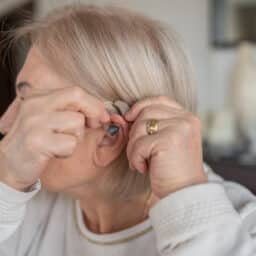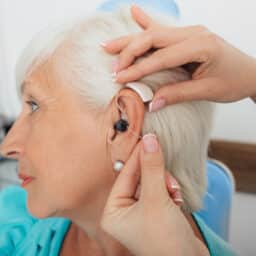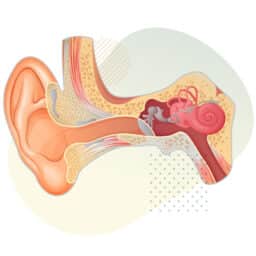What to Know About Protecting Your Residual Hearing

If you’ve already been diagnosed with hearing loss, one of the most critical steps you can take is to protect your remaining hearing, often referred to as residual hearing. Since most forms of hearing loss are permanent, protecting what’s left is essential to keeping your hearing functioning as well as possible in the long term….
Does My Sleeping Position Affect My Ear and Hearing Health

Your sleep posture, especially if you spend most nights on your side, can influence more than just how rested you feel. It can also affect the condition of your outer ear and how well your hearing devices hold up over time. Let’s take a closer look at how your nightly routine could affect your ears. …
How Do I Know If I Need a Hearing Test?

Nearly 15% of American adults have reported some trouble hearing in the past year, but does that mean they need a hearing test? Because hearing changes often happen slowly over time, many people don’t notice the signs right away, therefore, this does mean a hearing test should be considered. Identifying hearing loss early is crucial…
What Can I Expect During the Hearing Aid Adjustment Period?

When many people are fit with their first set of hearing aids, they mistakenly believe that putting them in for the first time will be like putting on a pair of prescription eyeglasses—they think they’ll be able to hear all the sounds around them with ease right away. Unfortunately, this is not the case. Because…
A Guide to Modern Hearing Aid Features

Technology is constantly advancing, and hearing aids are no exception. Just as when you buy a new phone, computer or TV, it’s important to understand the different features each hearing aid offers. Let’s take a look at some common hearing aid features to consider for your next or first device. Helpful Hearing Aid Features Four…
Common Ear Issues and How They Affect Your Hearing

Your ears keep you balanced, alert and connected to the world. But when something isn’t working properly, everyday sounds can become muffled, distorted or even painful. Understanding common ear problems is an essential step to protecting your hearing health. Frequent Causes of Hearing Problems Hearing loss and discomfort can stem from a variety of issues,…
How Do My Ears Work?

Every time you talk to a friend or listen to the crashing waves at Vero Beach, your ears are hard at work bringing sound to your brain in a fraction of a second. But how exactly do they accomplish this? Let’s explore the anatomy and function of your ears to uncover their role in your…
Shingles and Hearing Loss: What You Should Know

Shingles, identified by a red and itchy rash, comes from the varicella-zoster virus—the virus responsible for chickenpox. When you have chickenpox, the rash eventually clears but the virus remains dormant in the body. For approximately 10% of people, the virus can reactivate later in life as shingles. A lesser-known complication of shingles is damage to…
How to Care for Your Hearing Aids While Exercising, Showering and Sleeping

Hearing aids, like any valuable electronic devices, require a little extra care to keep them in tip-top shape. If you’re among the 15% of U.S. adults with hearing loss, you may wonder how you can best care for your hearing aids while sleeping, showering and exercising. Here’s a simple guide to help you know when…
Hearing Aids and Thanksgiving: How These Powerful Devices Provide Clarity

Thanksgiving is a time to savor more than just pumpkin pie and turkey—it’s about soaking in the quality time that makes this holiday special. However, if you or a loved one have hearing loss, the socializing aspect of this quality time may feel more overwhelming than fun. Let’s take a look at some ways hearing…
